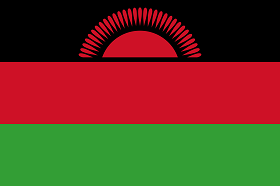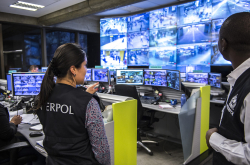 ملاوي
ملاوي
Tackling organized crime in Malawi
Southern African organized crime groups are typically involved in wildlife and forestry crime. They are also becoming increasingly involved in trafficking in drugs, firearms, people, stolen cars and counterfeit products, particularly pharmaceuticals. Malawi has the additional challenges of illegal immigration, and tax, economic and commercial fraud.
Most crime networks engage in these crime areas simultaneously, using the same trafficking routes to move multiple forms of illegal produce across the region, often bringing violence, insecurity and economic loss with them.
To anticipate, monitor, prevent and investigate these threats, and because crime networks invariably operate globally, it is essential for Malawi’s law enforcement to have access to a global police cooperation tool enabling it to work with counterparts in all continents.
INTERPOL in Malawi
The INTERPOL National Central Bureau (NCB) in Lilongwe is Malawi’s lead agency for national criminal investigations requiring cooperation with police forces in other countries.
The NCB sits at the heart of the Malawi Police Service (MPS), in the Criminal Investigation Department, the ‘plain clothed’ police unit which investigates serious crime.
The 10 police officers who work for the NCB are specialized in tackling the crime areas of specific concern to Malawi, and share valuable regional intelligence with the global INTERPOL police community.
Malawi Police Service
The President of Malawi is the Commander in Chief of the Malawi Police Service but delegates its day-to-day running to the Ministry of Homeland Security.
In addition to providing national law enforcement services, the Ministry of Homeland Security is responsible for prison, immigration and citizenship services.
MPS is under the command of an Inspector General assisted by two Deputy Inspectors General in charge of Administration and Operations respectively.
Serving a population of more than 14 million people, MPS organizes its administrative and operational activities by four police regions.









